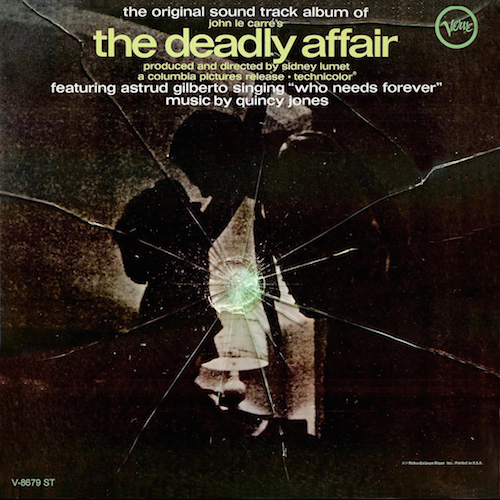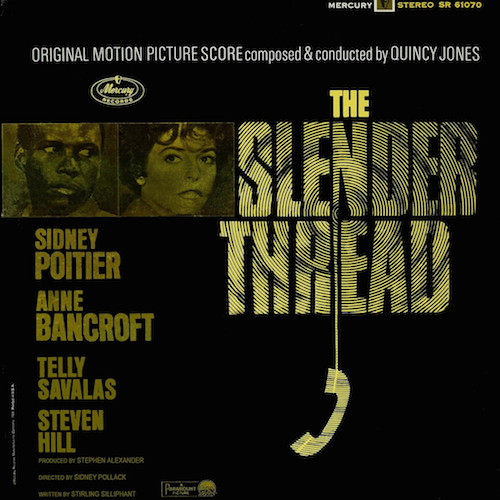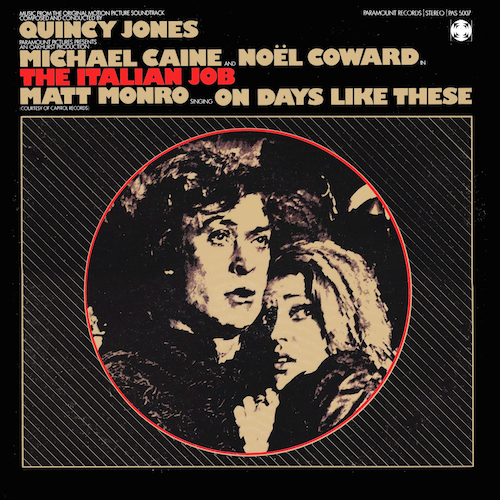10 hip-hop hits that sampled Quincy Jones' songs
As we prepare for the release of his revealing documentary, we recall legendary producer Quincy Jones' embrace of hip-hop culture, and the genre making use of his extensive catalogue in return.
REVOLT TVSep 20, 2018, 4:07pm EDT
 YouTube
YouTube
The views expressed in this article are those of the author and do not necessarily reflect the official policy or position of any other agency, organization, employer or company.
—by Rashad D. Grove
There aren't many who can claim that they have been an active participant in the evolution of American music. Quincy Delight Jones is such a person. He is arguably the most decorated and accomplished musician in recorded history. As a producer, writer, composer, and arranger, his career spans over 60 years in music, film and television. For his work, he has received a record 79 Grammy Award nominations, 27 Grammy wins, and a Grammy Legend Award. From Off the Wall, Thriller, Bad, and his critically acclaimed and commercially successful solo work, Jones's music has been the soundtrack to many of our lives.
His true genius lies in is his ability to collaborate with a diverse group of artists, transcending genres. Beginning as a jazz trumpeter with Lionel Hampton, Jones has worked with Aretha Franklin, Michael Jackson, Frank Sinatra, and a host of others too numerous to mention. He's stayed on the cutting edge of the music industry by cultivating relationships with younger musicians, even those of hip-hop. Unlike many of his contemporaries who failed to see the phenomenon as a continuation of the Black music tradition, he willingly tapped into the energy and creativity of the culture. He included Big Daddy Kane, Ice-T, and Kool Moe Dee on his Back on the Block LP which won a Grammy Award for Album of the Year. On Q's Juke Joint, he enlisted Kid Capri, Funkmaster Flex, LL Cool J, Queen Latifah, and Heavy D. He handpicked Will Smith to star in his own show The Fresh Prince of Bel-Air, which he also executive produced. But my favorite moment was when he was seen in Wu-Tang Clan's epic "Triumph" video nodding his head in agreement with RZA behind the production boards.
From the very beginning, Jones has connected himself with hip-hop culture. In return, the genre's artists have used compositions from Jones' extensive catalogue as source material to create their own sonic backdrops. With his new documentary Quincy due September 21, here's a look at 10 hip-hop hits that sampled his songs.
I got locked out of that other thread (BabyFace v. Fabulous Mastro Quincy Jones) because a certain person got clocked as a CAC and a clown.
As we prepare for the release of his revealing documentary, we recall legendary producer Quincy Jones' embrace of hip-hop culture, and the genre making use of his extensive catalogue in return.
REVOLT TVSep 20, 2018, 4:07pm EDT
/cdn.vox-cdn.com/uploads/chorus_image/image/65072804/trrkwxwq2xnyimrz8bjf.9.jpg)
The views expressed in this article are those of the author and do not necessarily reflect the official policy or position of any other agency, organization, employer or company.
—by Rashad D. Grove
There aren't many who can claim that they have been an active participant in the evolution of American music. Quincy Delight Jones is such a person. He is arguably the most decorated and accomplished musician in recorded history. As a producer, writer, composer, and arranger, his career spans over 60 years in music, film and television. For his work, he has received a record 79 Grammy Award nominations, 27 Grammy wins, and a Grammy Legend Award. From Off the Wall, Thriller, Bad, and his critically acclaimed and commercially successful solo work, Jones's music has been the soundtrack to many of our lives.
His true genius lies in is his ability to collaborate with a diverse group of artists, transcending genres. Beginning as a jazz trumpeter with Lionel Hampton, Jones has worked with Aretha Franklin, Michael Jackson, Frank Sinatra, and a host of others too numerous to mention. He's stayed on the cutting edge of the music industry by cultivating relationships with younger musicians, even those of hip-hop. Unlike many of his contemporaries who failed to see the phenomenon as a continuation of the Black music tradition, he willingly tapped into the energy and creativity of the culture. He included Big Daddy Kane, Ice-T, and Kool Moe Dee on his Back on the Block LP which won a Grammy Award for Album of the Year. On Q's Juke Joint, he enlisted Kid Capri, Funkmaster Flex, LL Cool J, Queen Latifah, and Heavy D. He handpicked Will Smith to star in his own show The Fresh Prince of Bel-Air, which he also executive produced. But my favorite moment was when he was seen in Wu-Tang Clan's epic "Triumph" video nodding his head in agreement with RZA behind the production boards.
From the very beginning, Jones has connected himself with hip-hop culture. In return, the genre's artists have used compositions from Jones' extensive catalogue as source material to create their own sonic backdrops. With his new documentary Quincy due September 21, here's a look at 10 hip-hop hits that sampled his songs.
I got locked out of that other thread (BabyFace v. Fabulous Mastro Quincy Jones) because a certain person got clocked as a CAC and a clown.
Last edited:













